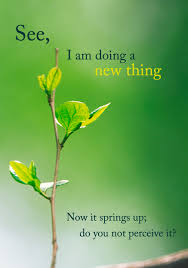The Biblical view of rest
Last week we asked the question, “Do you need rest?” We examined the three (3) biblical rests God has provided for His Covenant people. Sabbath rest, Canaan rest, and Eternal rest.
We concluded that accessing these rests is possible through development of an intimate relationship with God. Our rest can be found in listening to His voice and obeying Him. We closed with Lawrence O. Richards’ explanation that Christians often struggle with learning how to enter God’s rest. God’s rest is a place of confidence and contentment that can only be found in relationship with Him.
The Scientific view of rest
In her Ted Talk, “The 7 Types of rest that every person needs,” Dr. Saundra Dalton-Smith, shares what is really needed for us to rest. My biggest take away was the fact that we often mistakenly view rest as sleep.
“We go through life thinking we’ve rested because we have gotten enough sleep — but in reality we are missing out on the other types of rest we desperately need. The result is a culture of high-achieving, high-producing, chronically tired and chronically burned-out individuals. We’re suffering from a rest deficit because we don’t understand the true power of rest. “
Dr. Smith concludes her study with the definition of spiritual rest. She describes it as feeling a “deep sense of belonging, love, acceptance, and purpose”. She recommends that to receive spiritual rest, one needs to “engage in SOMETHING GREATER THAN YOURSELF, ADD PRAYER, MEDITATION, OR COMMUNITY INVOLVEMENT.”
For me, and believers in Christ, that “deep belonging, love, acceptance, and purpose” is found in Christ. Christ is the better rest.
A Better Rest
Paul states that in Christ, “we live, and move, and have our meaning” (Acts 17:28). This includes our time of rest. Even during our physical rest, we must not forget to maintain relationship with Jesus. It is in acknowledging the Lord’s presence, that our better rest begins.
Jesus invites the crowds in Matt. 11: 28-29 to “come to me, all you who are weary and burdened, and I will give you rest. Take my yoke upon you and learn from me, for I am gentle and humble in heart, and you will find rest for your souls.” Jesus offers rest.
After the disciples had returned from their mission trip (Mark 6:7-13), Jesus instructs then to “come with me by yourselves to a quiet place and get some rest.” Jesus is rest.
“Alone time” with God can allow God to examine us. It can be a time of knowing God more deeply, a time of strengthening, a time of refreshment, a time of sharing our deepest concerns with God, and a time of simply being with the One who formed us and loves us beyond our understanding.[1]
Rest: How do we enter it?
The rest we need can only be found in relationship with Jesus. It is “relational rest”. This rest can be found in the practice of spiritual disciplines. Spiritual disciplines are not an end in themselves. Spiritual disciplines are intended to deepen our relationship with God.[2]
| Prayer | Talking to God |
| Meditation | Listening to God |
| Solitude | Alone with God |
| Contemplation | Thinking about God |
| Worship | Glorifying God |
I close with a formula on how to enter God’s rest. Feel free to develop your own. The main thing to remember is to keep Christ as the source of your rest.
R. Reflection. Daily examine where God has been at work. This will foster awareness of God’s presence.
E. Exchange. Trade-out Satan’s lies for God’s truths. This will increase your wisdom and discernment.
S. Solace. Find comfort and consolation in God’s presence. This will strengthen your confidence.
T. Transformation. Each day seek to be conformed to the image of Christ. This will please God.
[1] Got Questions, “What does the Bible say about the value of solitude?”
[2] Rev. Dr. Wallace S. Hartsfield, “A Prayer for Presence.”





